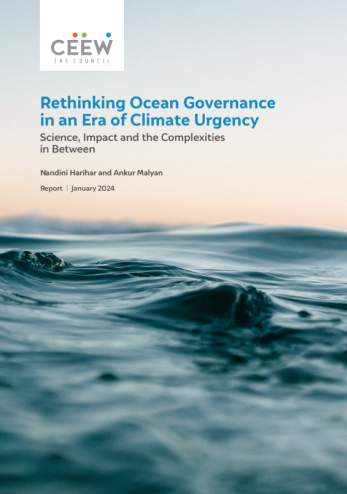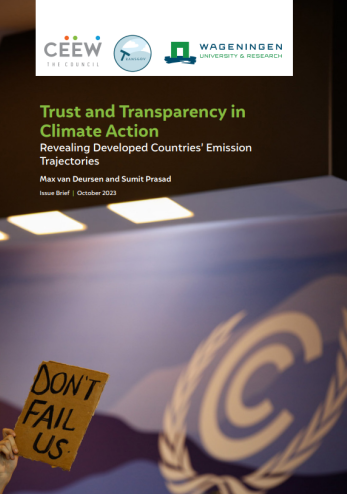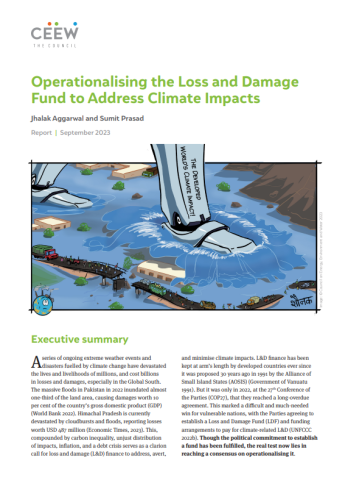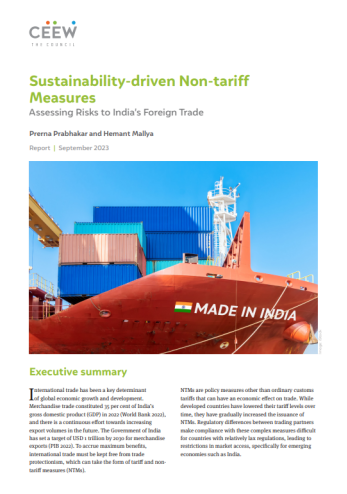Report
Integrity Matters: Net Zero Commitments by Businesses, Financial Institutions, Cities and Regions
Report from the United Nations’ High-Level Expert Group on the Net Zero Emissions Commitments of Non-State Entities
Amanda Starbuck, Arunabha Ghosh, Bill Hare, Camila Escobar, Carlos Lopes, Zhou Xiaochuan, Günther Thallinger, Helena Viñes Fiestas, Janine Felson, Jessica Omukuti, Joaquim Levy, Malango Mughogho, Mary Nichols, Kahori Miyake, Oumar Tatam Ly, and Rod Carr
November 2022 | International Cooperation
Suggested Citation: McKenna, Catherine, Arunabha Ghosh, et al. 2022. Integrity Matters: Net Zero Commitments by Businesses, Financial Institutions, Cities and Regions. Report from the United Nations’ High-Level Expert Group on the Net Zero Emissions Commitments of Non-State Entities. November.
Overview
The United Nation’s High-Level Expert Group (HLEG) report focuses on net-zero emission commitments of non-state actors such as financial institutions, corporations, and local and regional governments. Tasked by UN Secretary-General António Guterres, the 17-member expert group recommends standards and shows the path to accountable, credible net-zero pledges.
As the world races to limit global warming to 1.5°C above pre-industrial levels, greenwashing or false environmental compliance claims must be shunned. The report, released at COP27 in Egypt, recommends that non-state actors set progressive emission-reduction targets, publicly report on progress and plans, phase down the use of all fossil fuels, and demonstrate integrity when aligning commitments with actions and investments.
Key Highlights
The report gives 10 recommendations to non-state actors.
- Announce a net-zero pledge publicly. It should contain interim targets and plans to reduce emissions as fast as possible.
- Set net-zero targets. Non-state actors should announce short-, medium-, and long-term emission reduction targets across their value chain and activities.
- There are conditions to voluntary carbon credits. High-integrity carbon credits should be used for beyond-value-chain mitigation, but cannot be counted towards a non-state actor’s interim emission reduction.
- Create frequently updated transition plans. These plans must be verified by a third party, audited for accuracy, and importantly, be just.
- Phase out fossil fuels and scale up renewable energy. There is no room for new investment in fossil fuel supply — whether coal, oil or gas. The phasing out should be matched by fully funded transition to renewables.
- Aligning lobbying and advocacy. Non-state actor leaders need to actively push for ambitious net-zero policies in countries and industry groups in which they operate.
- Include people and nature in just transition. The world cannot reach net zero by 2050, without ending deforestation by 2025. Financial institutions must not invest in businesses linked to deforestation.
- Increase transparency and accountability. Non-state actors must disclose their greenhouse gas data, net-zero targets and plans to meet those targets every year. They must also have their emission reduction data verified by independent third parties.
- Invest in just transitions. Non-state actors must work with governments, Multilateral Development Banks and Development Finance Institutions to take more risks and scale up investments in clean energy transitions in developing countries.
- Accelerate the road to regulation. Regulators should develop regulations and standards in areas such as net-zero pledges, transition plans and disclosure. A new Task Force should be launched.
What the Expert Group offers here is a roadmap to prevent net zero from being undermined by false claims, ambiguity and “greenwash".







